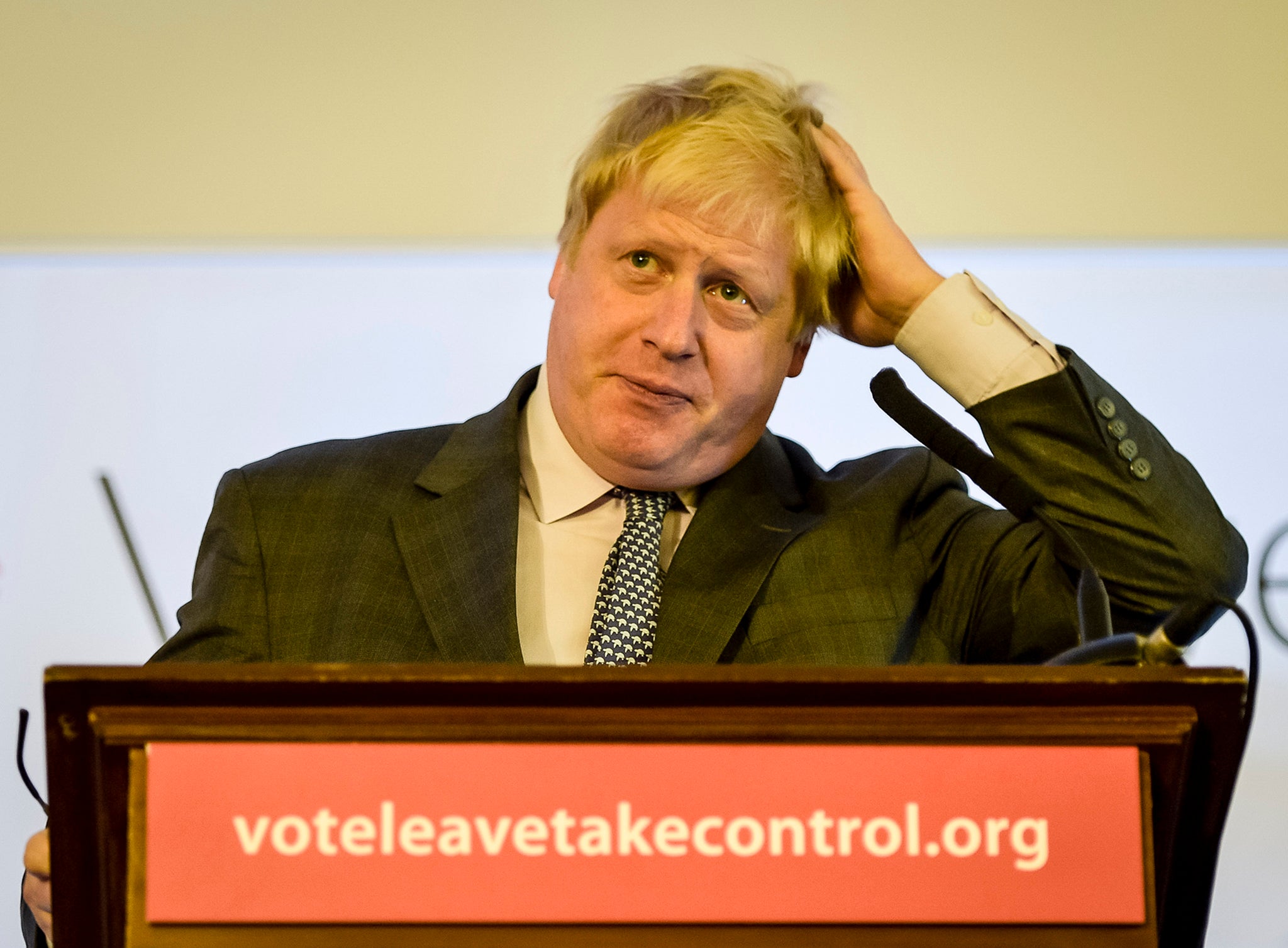Brexit is an exercise in fear rather than futurology
Both sides of the debate play fast and loose with “facts” and neither will admit that no-one can say what the future will hold for the UK

Your support helps us to tell the story
From reproductive rights to climate change to Big Tech, The Independent is on the ground when the story is developing. Whether it's investigating the financials of Elon Musk's pro-Trump PAC or producing our latest documentary, 'The A Word', which shines a light on the American women fighting for reproductive rights, we know how important it is to parse out the facts from the messaging.
At such a critical moment in US history, we need reporters on the ground. Your donation allows us to keep sending journalists to speak to both sides of the story.
The Independent is trusted by Americans across the entire political spectrum. And unlike many other quality news outlets, we choose not to lock Americans out of our reporting and analysis with paywalls. We believe quality journalism should be available to everyone, paid for by those who can afford it.
Your support makes all the difference.Fear feeds on fear, it is sometimes said, and it certainly seems to be the case in the European referendum debate. When one side, or, in fact, both sides claim that Britain’s natural talent for creativity across popular and serious culture (a slightly self-congratulatory assumption in any case) would be adversely affected either if we stay in or leave the European Union, it is a sign that things are getting a bit silly.
Silly, but dangerous too. After Boris Johnson’s increasingly unhinged remarks marginalised the individual who was supposed to be the Leave campaign’s star player, the more sober Michael Gove has weighed in with a judgement that some 5 million migrants – equivalent to the population of Scotland – will be turning up in the UK should we choose to stay in, all the while the EU continues to expand eastwards. Turks, Albanians, Serbs, and heavens knows who else will be getting on the first bus out of Ankara, Tirana or Belgrade and heading for London Victoria Coach Station. Well, it could happen, but there are so many stages and contingencies before the full-blown eastern influx takes hold of Britain that it is more an exercise in fear than futurology.
The EU, having difficulty in digesting the substantial expansion in recent decades, and even suffering some dyspepsia from an earlier wave of accession in southern Europe (witness the Greek debt crisis), shows little further territorial ambition. Indeed, the French in particular have long made clear their opposition to the EU having a border with Syria and the rest of the Middle East, which would be the result of a Turkish accession. Given the rise of so called Islamic State, it seems less likely than ever that Turkey will be granted full membership, and even the Turks now appear to have accepted that.
Even if they did join, how certain can Mr Gove be about the prospect of 5.2 million migrants – a spuriously precise-sounding figure? Why not 7.2 million? Or 10.2 million? Turkey alone, after all, has a population of 75 million. One reason why it may be much smaller is that those eastern states’ economies are rapidly developing, and the “pull” of higher wages in the west will eventually subside as real wages and living standards in those countries will rise. That is precisely what happened in the decades after Ireland, Portugal and Spain joined the EU, and migration from those countries slowed down.
Remember the great Romanian invasion-that-never-was of a few years ago? When Keith Vaz and the press turned up expecting to welcome a horde of eastern Europeans on the first day that the free movement of labour was agreed for them? They had to make do with one bemused migrant who told them he had come to work hard. Insofar as there has been a wave of immigration from Poland and the rest of the newer members of the EU – and it has been much larger than was first assumed – it has been, on balance, a bonus to the economy. Migrants tend to be younger, fitter, harder-working and less likely to draw on the welfare state or the health service than the existing population. It may well be that in some towns and cities there has been an additional demand placed on schools, clinics or housing, but that is not their fault in any event, and could be resolved, for them and the rest of us by greater public investment.
And so the two campaigns are not serving the voting public well. The prime minister refuses to debate with his most able opponents, who tend to be in his own party. Both sides play fast and loose with “facts”. Neither admits that no-one can say what hypothetical futures look like. Both campaigns rely heavily on the word of “experts” or celebrities, all of whom have no monopoly on wisdom. So all we are left with is a competition between two fearful futures. This is the ultimate negative campaign.
Join our commenting forum
Join thought-provoking conversations, follow other Independent readers and see their replies
Comments